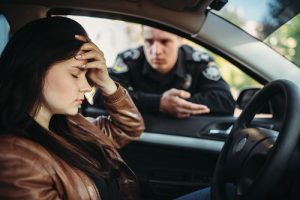C alifornia uses a variety of different roadside sobriety tests. You’ve probably seen a DUI checkpoint on the road where vehicles are stopped here and there, drivers have stepped out to walk in a straight line or balance on one leg.
alifornia uses a variety of different roadside sobriety tests. You’ve probably seen a DUI checkpoint on the road where vehicles are stopped here and there, drivers have stepped out to walk in a straight line or balance on one leg.
Rest assured, a failure of one of these tests does not mean you are doomed to a DUI. It does mean you might face legal charges, but these can be fought in court. There are defenses against your charges, depending on the circumstances of your situation.
My name is Jon Bryant Artz, and I have been a DUI attorney in Los Angeles for more than 40 years. During that time, I have helped thousands of people reduce or get rid of their DUI charges.
I wrote this guide to help you understand what happens when you fail a field sobriety test, what steps you should take next, and what you should worry about moving forward.
Different Types of Roadside Sobriety Tests Used in California
First of all, there are 5 categories of DUI evidence:
- Driving clues
- Personal symptoms
- Field sobriety tests
- Incriminating statements
- BAC
Chances are, at a field sobriety test checkpoint, you will not be pulled over for a driving violation. If you are on the road, you may be pulled over for driving clues such as swerving, erratic speed, etc. From there, if a police officer notices the odor of alcohol, they are likely to administer a field sobriety test.
I recommend that you do not submit to field sobriety tests. This is, providing evidence as to whether alcohol has mentally or physically caused driving impairment. As for an attorney.
In California, the most common field sobriety tests include:
- One-legged stand
- Walk and turn
- Nystagmus test where you follow a pen or finger from one side to another with your eyes
- The Rhomberg test or modified position of attention
The accuracy of field sobriety tests has been challenged time and time again for a multitude of reasons. Officers look for many things. With personal symptoms, they look for things like slurred speech when answering questions and red, bloodshot eyes.
Field sobriety tests are designed to test your balance, coordination, and divided attention. Incriminating statements are also things they look for, such as admitting you were drinking, for example. With the BAC, administered via breathalyzers in the field or blood tests, officers are looking for something above the legal limit of .08%.
There are loopholes for each of the field sobriety tests though, such as personal health factors, overweight, over age 65, and environmental factors (like strong wind or wet roads that cause you to slip during the walk and turn or push you over during the one-leg stand), bad results, or poor calibration on the breathalyzer, and more.
What Happens if You Fail a Roadside Sobriety Test?
If you fail a roadside sobriety test, this does not mean you have been charged with anything yet.
You might be arrested if there is probable cause to arrest for a DUI. This is the most likely next step, but again, this does not mean you are convicted of a DUI. At worst, the police might charge you with a DUI which still needs to be proven in a court of law. This failure will likely be used as evidence against you in a court case, but with the help of an attorney, you can fight it.
Should you fail a roadside test, it is imperative that you speak with an experienced DUI attorney immediately to explore your options.
What Should You Do If You Have Failed the Field Sobriety Test?
The first thing you should do if you have failed a field sobriety test and suffered an arrest, is speak with an attorney. He or she will be able to assess your case, determine what your best plan of action is, and get you started working on the next steps to get your charges reduced or dropped.
If you have failed a field sobriety test and are facing DUI charges, don’t try to fight them alone. You need a trusted resource with years of experience and defined success in the field.
Contact Jon Bryant Artz for a free case evaluation. Jon has over 40 years of experience helping people just like you fight through their DUI charges and get the justice and the second chances they deserve.


